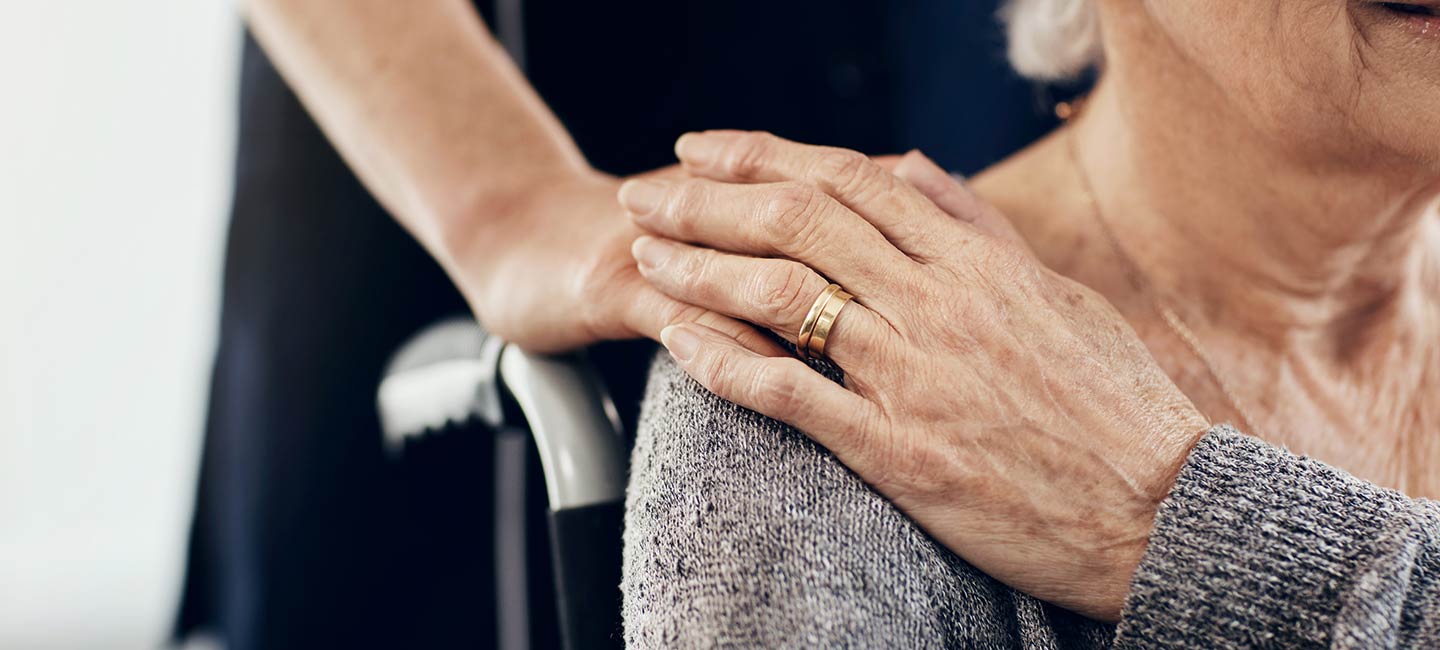Reducing Stress is Critical for Cancer Caregivers
More than one in five Americans, or 53 million people, are providing care to an adult or child with special needs. Caregiving can vary based on the loved one’s needs, but there is no doubt the journey can be stressful especially for those caring for cancer patients.
While many people find meaning in caring for someone with cancer, it can have implications that are physical, emotional and financial. Cancer caregivers spend an average of 32.9 hours a week caring for their loved one, according to a recent report from the National Alliance for Caregiving. But many caregivers are reluctant to talk about the struggles they may be experiencing or ask for support.
Research aimed at better understanding the role of caregivers and how to support them has been a growing area of interest for the National Cancer Institute, as well as Moffitt Cancer Center.

Dr. Christine Vinci, Health Outcomes & Behavior Department
“We know that cancer caregivers experience high rates of distress and burden,” said Dr. Christine Vinci, an assistant member in Moffitt’s Health Outcomes & Behavior Department. “This is not surprising given the stress that comes from the extensive time, effort and resources necessary to care for their patient.”
Vinci and a team of Moffitt researchers have launched the COMPASS study evaluating whether stress management interventions can reduce burden and distress among a specific population of cancer caregivers — those who are the primary caregiver for someone undergoing an allogeneic hematopoietic stem cell transplant. During this procedure, a patient’s immune system is depleted to make room for donor stem cells. Patients can be hospitalized for as long as a month to prepare, receive and recover from the transplant. Once discharged, the patient and their caregiver must live within a certain radius of the hospital for three months for follow-up care.
“This can be extremely taxing for a family, especially if they do not live near their treatment facility or if there are children or pets that need to be cared for during this period,” said Vinci. “There are also specific meal prep guidelines, intense hygienic procedures and infection risk precautions for the patient that need to be followed during this time. It can be a lot for a caregiver to handle.”
The goal of the COMPASS study is to see if mindfulness can reduce burden for caregivers by acknowledging and managing their stress. Mindfulness is the ability to be fully present and aware of where you are and what you are doing, while not being overly reactive or overwhelmed by it.
Vinci says many people may think of mindfulness as “not thinking” or “zoning out,” but that is not accurate.
“When we use mindfulness as a treatment to manage stress, it is really about coming at the stress head on. Controlling your reaction to it. Taking a moment to stop, take a breath, acknowledge what is happening around you and redirecting your focus. Our hope is that by teaching caregivers to practice mindfulness daily, we can alleviate some of the burden and anxiety they may feel and in turn can also have a positive effect on the patients they are caring for,” she said.
Recruitment for the study began in September and will continue for the next three years. If you are interested in learning more about the study, you can email COMPASS@Moffitt.org or call 813-745-1886.
CAREGIVING BY THE NUMBERS
- 2.8 Million – Estimated number of caregivers for cancer patients in the U.S.
- 32.9 – Hours a week, on average, cancer caregivers spend taking care of their loved ones
- 50% – Proportion of caregivers who manage five or more prescription medications daily
- $375 Billion – The approximate value of unpaid services that caregivers provide every year
* figures based on 2016 Cancer Caregiving in the U.S. report



